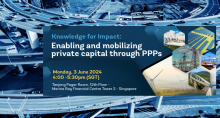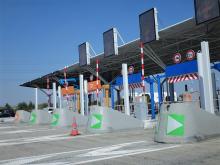Africa Community Forum: Climate-Smart PPPs for a Green, Resilient and Inclusive Recovery
The combination of rapid urbanization and increasing vulnerability due to climate change is putting urgent pressure on the infrastructure of emerging and developing economies (EMDEs). At the same time, these economies have limited resources to cope with disasters, constraints that have been further exacerbated by the effects of the ongoing pandemic.
PPP Legal Frameworks Post Covid-19
PPP Legal Frameworks Post Covid-19
To remedy impacts of the current COVID-19 crisis on PPP programs and projects, governments are analyzing possible actions to stabilize markets and prevent project failures. In most cases, these measures have been ad hoc and of temporary nature such as modifying and/or suspending relevant PPP contract provisions. What are the long-term implications of the current pandemic and possible similar future crises on legal frameworks for PPP?
Toll Road PPPs: Identifying, Mitigating and Managing Traffic Risk
Through PPP models, toll revenues can be used to service private sources of finance that can enable fiscally-constrained governments to fund new road construction, improve existing roads and ensure long-term high quality maintenance. However, the credit quality of these kind of PPPs and the associated cost and availability of finance are heavily dependent on project parties being able to accurately forecast traffic and revenues over a horizon sometimes decades in the future.
The Use of Islamic Debt in Social Sector Projects
This is a joint initiative of the World Bank Group and the Islamic Development Bank.
In many Organization of Islamic Cooperation (OIC) member countries, an increasing number of PPP infrastructure projects are being jointly financed by conventional and Islamic banks. While these projects bring together conventional and Islamic tranches, one frequently asked question is: how are these two financing classes integrated in a single project?



